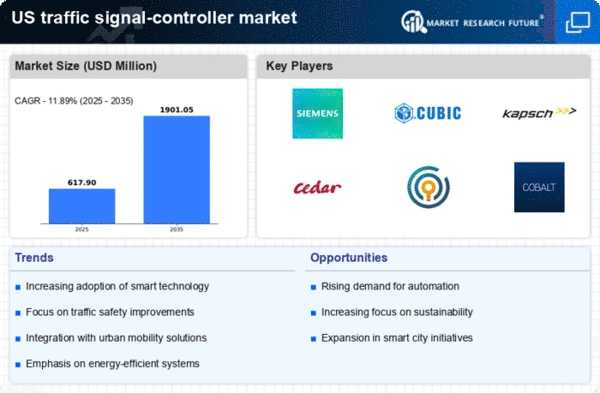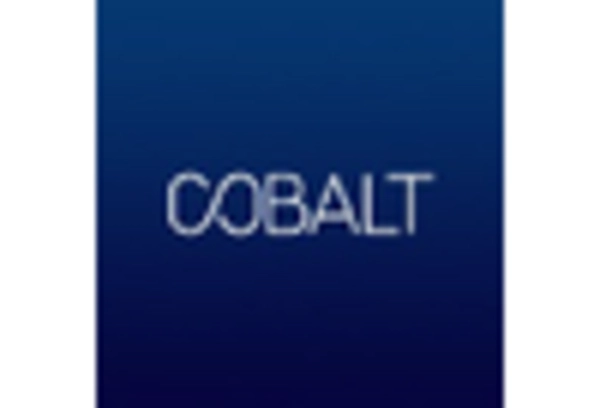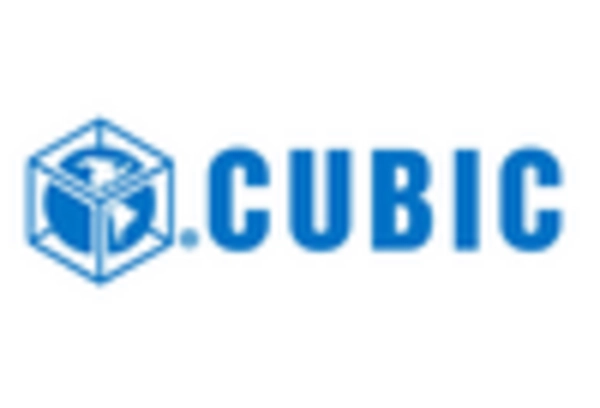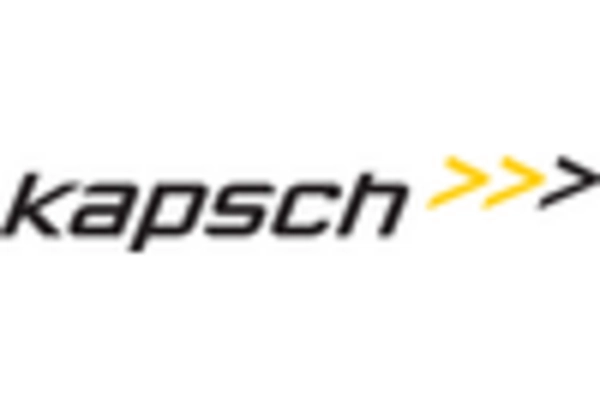Increasing Urbanization
The traffic signal-controller market is experiencing growth due to the rapid urbanization occurring across the United States. As more individuals migrate to urban areas, the demand for efficient traffic management systems intensifies. Urban centers are becoming increasingly congested, leading to longer commute times and heightened traffic-related issues. In response, municipalities are investing in advanced traffic signal controllers to optimize traffic flow and reduce delays. According to recent data, urban areas are projected to account for over 80% of the US population by 2050, which suggests a corresponding increase in the need for sophisticated traffic management solutions. This trend indicates a robust opportunity for the traffic signal-controller market to expand its offerings and enhance urban mobility.
Rising Concerns Over Road Safety
Concerns regarding road safety are propelling advancements in the traffic signal-controller market. With traffic accidents remaining a leading cause of fatalities in the US, there is an urgent need for improved traffic management solutions. Enhanced traffic signal systems can play a crucial role in mitigating accidents by providing better control over vehicle and pedestrian movements. Recent statistics reveal that implementing advanced traffic signal controllers can reduce accident rates by approximately 25%. This growing emphasis on safety is likely to drive municipalities to invest in modern traffic signal technologies, thereby fostering growth within the traffic signal-controller market.
Government Initiatives and Funding
Government initiatives aimed at improving transportation infrastructure are significantly influencing the traffic signal-controller market. Federal and state governments are allocating substantial funds to modernize traffic systems, with investments reaching billions of dollars annually. Programs such as the Infrastructure Investment and Jobs Act are designed to enhance road safety and efficiency, which directly benefits the traffic signal-controller market. These initiatives often include grants and incentives for municipalities to adopt advanced traffic management technologies. As a result, the market is likely to see increased adoption of intelligent traffic signal systems that can adapt to real-time traffic conditions, thereby improving overall traffic flow and safety.
Shift Towards Smart City Initiatives
The shift towards smart city initiatives is significantly impacting the traffic signal-controller market. As cities across the US aim to enhance urban living through technology, the integration of smart traffic management systems becomes essential. These systems utilize data analytics and connectivity to optimize traffic flow, reduce congestion, and improve air quality. The smart city movement is expected to drive investments in traffic signal controllers that can communicate with other smart infrastructure components. Reports suggest that the smart city market could reach a valuation of $2 trillion by 2025, indicating a substantial opportunity for the traffic signal-controller market to align with these initiatives and provide innovative solutions.
Integration of Artificial Intelligence
The integration of artificial intelligence (AI) into traffic signal controllers is emerging as a pivotal driver for the traffic signal-controller market. AI technologies enable traffic signals to analyze real-time data, predict traffic patterns, and adjust signal timings accordingly. This capability not only enhances traffic flow but also reduces congestion and emissions. Recent studies indicate that AI-driven traffic management systems can improve traffic efficiency by up to 30%. As cities strive for smarter infrastructure, the demand for AI-enabled traffic signal controllers is expected to rise, presenting a significant opportunity for market players to innovate and capture a larger share of the traffic signal-controller market.
















